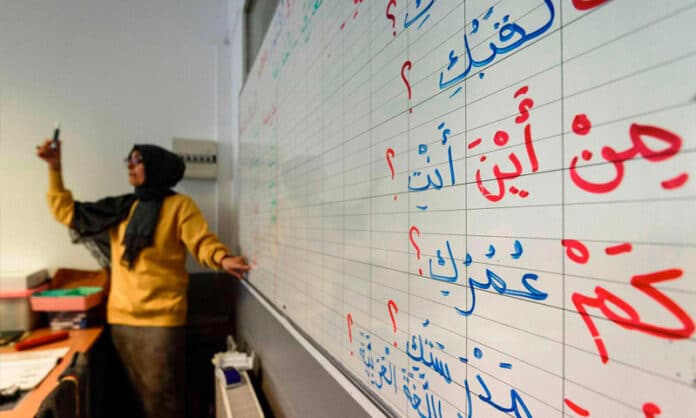In a move sparking controversy and debate, the Ministry of National Education, Higher Education, and Vocational Training of Morocco has announced plans for a competition to select professors to teach Arabic language and Moroccan culture to members of the Moroccan community residing abroad. Set to take place on April 18, 2024, the competition will allocate a total of 231 positions across three European countries: France, Spain, and Belgium. However, amidst this initiative lies a contentious issue: the systematic absence and exclusion of the Amazigh language, a cornerstone of Moroccan identity.
Critics have voiced concerns over the Moroccan government’s relentless focus on Arabization, highlighting the neglect of the Amazigh language in educational and cultural programs. Despite its status as an official language and a vital component of Moroccan heritage, Amazigh continues to be sidelined, raising questions about the state’s priorities and its commitment to linguistic diversity.
The decision to prioritize Arabic instruction for the Moroccan diaspora has ignited debate over the government’s motivations and ideological underpinnings. Some argue that the emphasis on Arabization overlooks the linguistic and cultural realities of Moroccans living abroad, many of whom predominantly speak Amazigh or European languages.
Moreover, critics contend that the state’s fixation on Arabic proficiency as a prerequisite for patriotism and belonging to the homeland is misguided. They assert that Amazigh, with its rich cultural heritage and widespread use among Moroccan expatriates, deserves equal recognition and support in educational initiatives.
The controversy underscores broader issues surrounding language policy and cultural identity in Morocco. Despite the constitutional recognition of Amazigh as an official language, its implementation has been slow, with regulatory laws lagging behind. This delay reflects deeper tensions within Moroccan society regarding the recognition and promotion of linguistic diversity.
Advocates for Amazigh language and culture argue that its preservation is crucial not only for the Moroccan diaspora but also for fostering a more inclusive and pluralistic society within Morocco itself. They emphasize the importance of teaching Amazigh civilization and history to diaspora youth, highlighting its role in promoting tolerance, openness, and moderation.
Amidst calls for greater respect for linguistic and cultural rights, concerns have been raised about the implications of the government’s Arabization policy. Some fear that marginalizing Amazigh language and culture could exacerbate feelings of alienation and disenfranchisement among Moroccan expatriates, hindering efforts to foster a sense of belonging and identity.
As the debate intensifies, stakeholders urge the Moroccan government to reevaluate its language policies and take meaningful steps towards recognizing and promoting linguistic diversity. By embracing Amazigh language and culture alongside Arabic, Morocco can reaffirm its commitment to inclusivity, tolerance, and respect for all its citizens, both at home and abroad.
Document;


